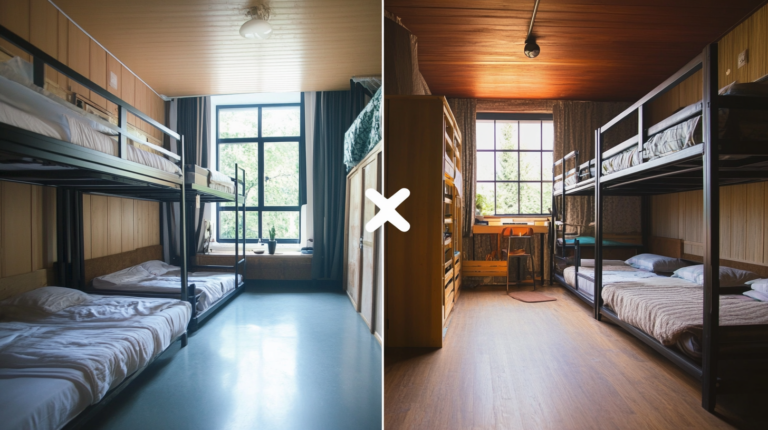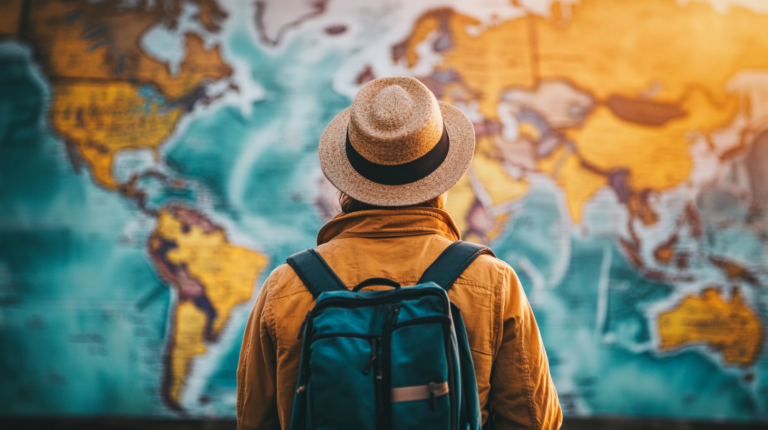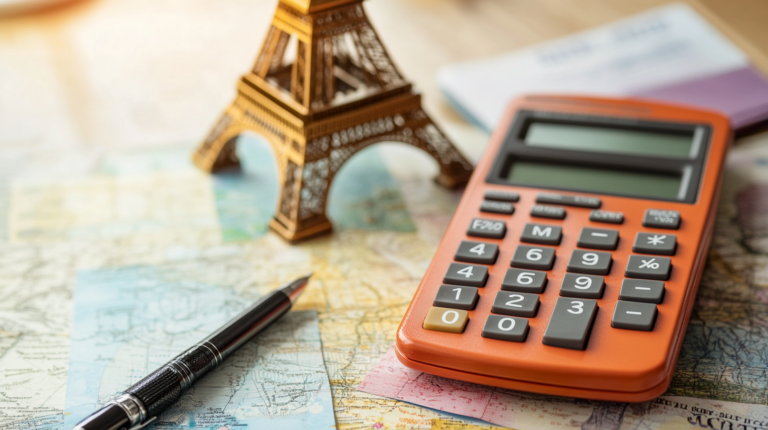How to Travel on a Budget: Complete Beginner’s Guide
Follow These Money-Saving Hacks and Travel on a Budget With Ease
Many travelers today face a dilemma: their desire to explore often clashes with tight budgets. Rising airfare prices, high accommodation costs, and daily expenses can quickly turn an exciting trip into a financial burden. However, exploring the world doesn’t have to mean spending a fortune. In this guide, you’ll find powerful insights and resourceful strategies designed to help you cut costs, avoid common travel traps, and create memorable experiences.
Whether you’re a student, a young professional, or just someone craving a new adventure, here’s how to travel on a budget—no compromises, no hidden fees, just pure exploration.
Smart Booking Strategies: Getting the Best Deals on Flights and Accommodation
1. Timing Is Everything
- Book in Advance, but Not Too Early: For the best flight deals, aim to book your tickets roughly 6-8 weeks before departure, when prices are often lower. For international flights, booking around 3-6 months ahead typically offers a sweet spot.
- Time of Day Matters. The time of day you are looking for tickets can also have an impact on the pricing. Avoid high traffic times of day like weekday mornings and weekend afternoons/evenings. I like to book tickets at around midnight on Tuesdays and Wednesdays for the best deals.
- Travel During Off-Peak Seasons: Traveling outside major holiday periods or peak tourist seasons can save hundreds of dollars. Try to schedule trips in the “shoulder seasons”—the weeks just before or after peak times. This way, you still enjoy decent weather and fewer crowds, all at a lower cost. For example, if you want to go to the Caribbean, check the pricing during the summer months, its 50% less expensive because they need the tourism during off-season.
- Use Flight Tracking Tools: Websites like Skyscanner, Google Flights, and Kayak offer price alerts that can help you spot deals early. This strategy lets you pounce on discounts as soon as they’re available. My personal favorite is Google Flights – it will alert you when the prices drop.
2. Choose Alternative Lodging Options
- Opt for Hostels and Budget Hotels: Hostels aren’t only for backpackers; many offer private rooms, allowing travelers to save money without sacrificing privacy. Plus, they’re often located in central areas which make exploring on foot easier.
- Consider Vacation Rentals: Platforms like Airbnb and Vrbo can offer fantastic alternatives to traditional hotels. For longer stays, rentals are often more economical and offer home-like amenities, such as kitchens, where you can save by cooking.
- House-Sitting and Home Exchanges: House-sitting is a great option if you’re flexible with timing and location. Websites like TrustedHousesitters can connect you with homeowners looking for house-sitters in exchange for free accommodations. For more adventurous travelers, consider a home exchange, where you swap homes with someone in your destination country.
Savvy Transportation Tactics for Affordable Adventures
1. Public Transport Is Your Friend
- Public transport is one of the best ways to get around on a budget. Many cities offer daily or weekly passes, which can significantly reduce transportation costs. Research in advance to see if your destination provides discounts for tourists.
2. Walk, Bike, or Rent a Scooter
- Walking and biking are excellent ways to save on transportation costs, and they also allow you to experience your destination more authentically. For a faster option, renting a scooter or e-bike is usually cheaper than taking taxis or ride-shares and not to mention, its much more fun!
Food Hacks: Eating Like a Local Without Overspending
1. Skip the Tourist Spots
- Restaurants near major attractions often have inflated prices. Instead, look for local eateries that cater to residents, not tourists. I use apps like Yelp and TripAdvisor to find local hot-spots that offer authentic cuisine without the tourist markup.
2. Embrace Street Food
- Street food is not only affordable, but it also gives you a taste of the local culture. Try popular dishes at food stalls and markets, where you’ll often find fresh, authentic meals for a fraction of the cost of restaurant dining. I always look for the food stalls with the longest lines, its a good indication that the food will be very good (and not make you sick).
3. Buy Groceries and Cook Your Own Meals
- Shopping at local grocery stores can save you a lot of money. Many accommodations, like hostels and vacation rentals, offer kitchen facilities, making it easy to prepare your own meals. I personally made this switch and it has saved me thousands of dollars; it’s okay if the rental with a kitchen costs a little more – you will save 5x that on food!
Entertainment on a Budget: Free and Low-Cost Experiences
1. Take Advantage of Free Attractions and Events
- Most cities offer a range of free activities, from museum days to walking tours and cultural festivals. Check tourism websites or social media pages for schedules and details. Local Facebook groups are a good place to look as well.
2. City Passes and Discount Cards
- Many destinations offer city passes that provide discounted or free entry to popular attractions. Look up whether your destination has such a pass and calculate if it’s worth the investment based on your itinerary.
3. Nature and Outdoor Adventures
- Hiking, beach days, and park visits are often free and can be some of the most memorable experiences of your trip. Research the best outdoor spots near your destination for scenic, budget-friendly options. Some of my best memories and some of the coolest things I have seen were in state parks near wherever I was staying.
How to Manage Money Abroad Without Losing to Fees
1. Use a Travel-Friendly Bank Account or Credit Card
- Bank fees can add up, so consider opening a travel-friendly bank account or using a credit card with no foreign transaction fees. Many travel credit cards also offer rewards and points on purchases, giving you even more value. A lot of times the credit cards they try to sign you up for during flights offer these benefits and a free check bag!
2. Avoid Airport Currency Exchange Booths
- Exchange rates at airports are typically the worst. It’s usually better to withdraw cash from ATMs in the country you’re visiting or use local bank branches for currency exchanges. Ordering your money from your own bank 2 weeks before you need to leave for vacation is always a good option as well. I say 2 weeks because it often takes them a few days up to a week to obtain foreign currency.
3. Keep an Eye on Local Deals and Discounts
- Check out deal websites in your destination country, such as Groupon, for restaurant, activity, and event discounts. There are good deals on Expedia for activities as well.
Budget Travel Packing Tips: What You Need (and Don’t Need)
Packing smart can also save you a lot of money and hassle. Airlines often charge extra for checked baggage, so try to pack lightly to avoid these fees. Here’s what to keep in mind:
1. Bring Reusable Items
- Bringing a reusable water bottle, coffee cup, and shopping bag can save you money and help reduce waste. Many cities have refill stations for water, which is an easy way to avoid buying bottled water on the go.
2. Pack a Portable Charger and Adaptors
- Avoid buying chargers or adaptors at the airport, where prices are marked up. Instead, pack these essentials to avoid unplanned expenses. Get them on Amazon for a fraction of what they cost at the airport, believe me…
3. First Aid Kit and Basic Medicines
- Having a small first aid kit and basic medicines on hand can save you from high pharmacy prices in tourist areas. You don’t need much, I typically just bring Advil.
Extra Budget-Saving Tips: Little Things That Make a Big Difference
1. Choose Flexible Travel Dates
- Flexibility with your travel dates can be a huge money-saver. If your schedule allows, play around with different dates on booking websites to find the best deals. Thursday to Tuesday is always better pricing than Friday to Sunday will be for air fares for example.
2. Follow Airlines and Travel Platforms for Deals
- Follow airlines, hotels, and travel platforms on social media to get first-hand information about deals and discounts. Many companies announce flash sales on social media before they show up on booking sites. Signing up for airline credit cards often gets you a free check bag.
3. Be Open to “Off-the-Grid” Destinations
- Major tourist destinations come with high price tags. By exploring less-popular or emerging travel spots, you’ll often find cheaper accommodations, food, and activities—alongside a more unique experience.
Conclusion: Go Beyond the Ordinary—Travel Smart, Travel Savvy
Traveling on a budget is less about strict restrictions and more about being resourceful and strategic. With these expert tips, you’re ready to explore new places without overspending. Remember, the best experiences aren’t measured by the amount spent but by the memories made. So, the next time you’re planning a trip, use these strategies, pack smart, and prepare to see the world in a way that’s both affordable and unforgettable.
Happy Travels!






